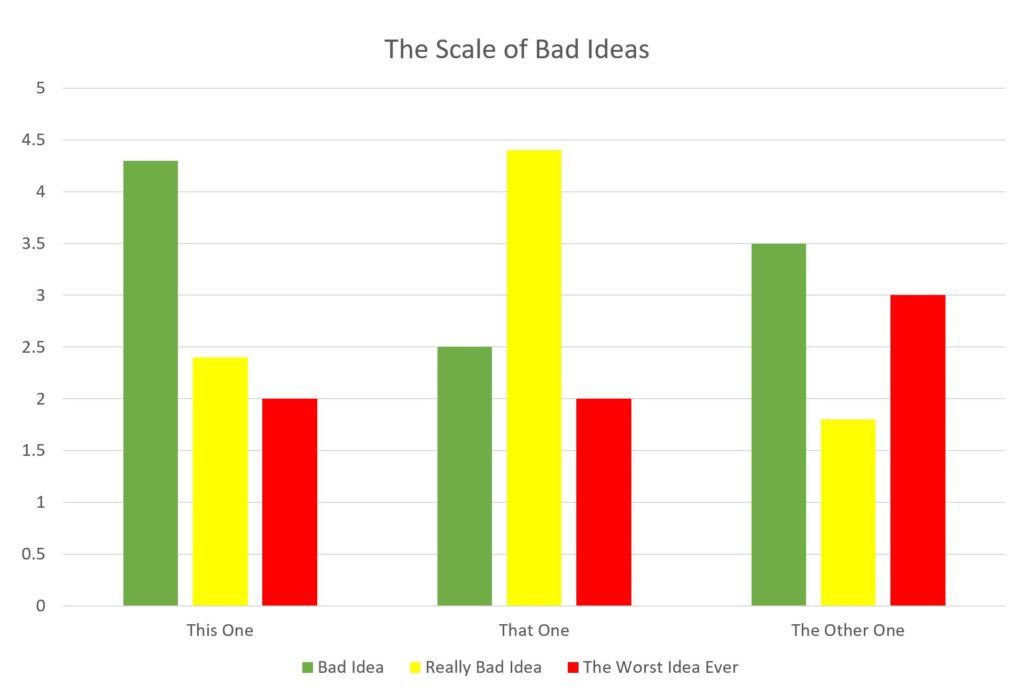When Bad Ideas Happen to Good Employees
 Recently a friend told me a funny story about one of his coworkers. His company hired someone to help them cut costs and reduce wasted time and materials. Essentially, his job was to make the company run more efficiently to increase profitability.
Recently a friend told me a funny story about one of his coworkers. His company hired someone to help them cut costs and reduce wasted time and materials. Essentially, his job was to make the company run more efficiently to increase profitability.
I was immediately interested in this story because I’m a big fan of efficiency. Or maybe just a big hater of wasted time and money. Either way, I know a bit about Lean Manufacturing Principles and Rapid Improvement Processes and was curious to know what techniques this person was using.
One of the processes he implemented required everyone who worked in their office to keep three colored cups at their workspaces. If everything was fine, they were supposed to display a green cup on the corner of their desk. If they had a non-urgent issue, they used a yellow cup, and the red cup was for when they needed their manager immediately.
By this point in the story I was already laughing, imagining a room full of adults being told they needed to use plastic drinkware to signal how well they were managing their work throughout the day.
I have no idea why the efficiency expert thought this was a good idea, or why he tried to implement it without getting buy-in from the staff first. If he had asked for feedback, he would have realized that nobody wanted to announce to their entire office when they had an issue they couldn’t resolve on their own. Plus, when people had questions, they just asked them, so it was solving a problem that didn’t exist.
But he didn’t get their feedback first, so everyone had to suffer through an office full of people sabotaging a process while feeling foolish and irritated.
Leading a team through a Rapid Improvement Process can have the complete opposite result. The surface-level benefit is that a work process that was slow, wasteful, or otherwise unpleasant is transformed for the better. But the real win is the positive impact in morale. When people are asked how their tasks could function more smoothly and work together as a team to create solutions, they feel valued, they are given some control over their work environment, and they bond during the process.

Recent Comments